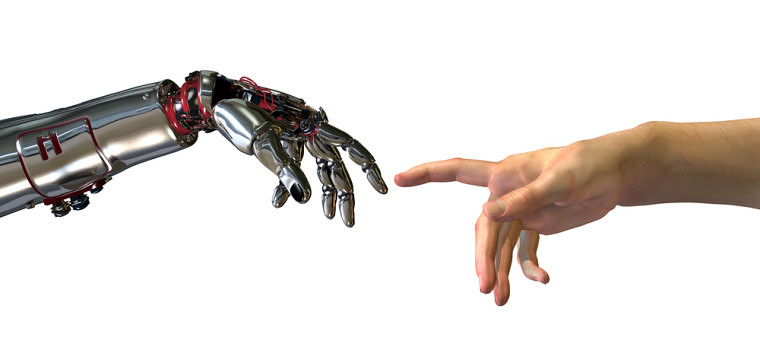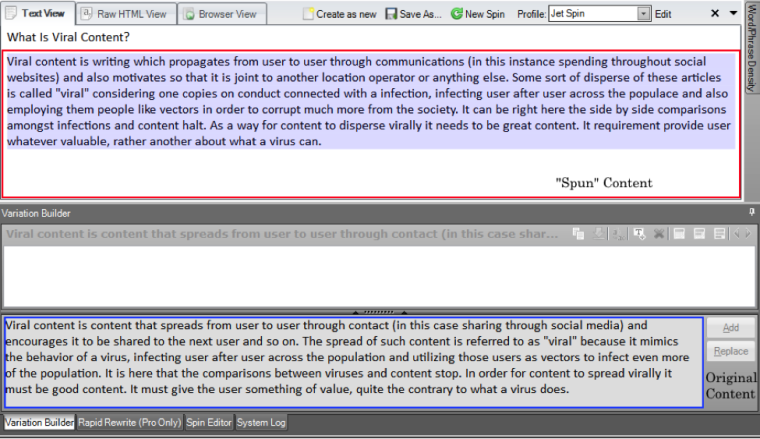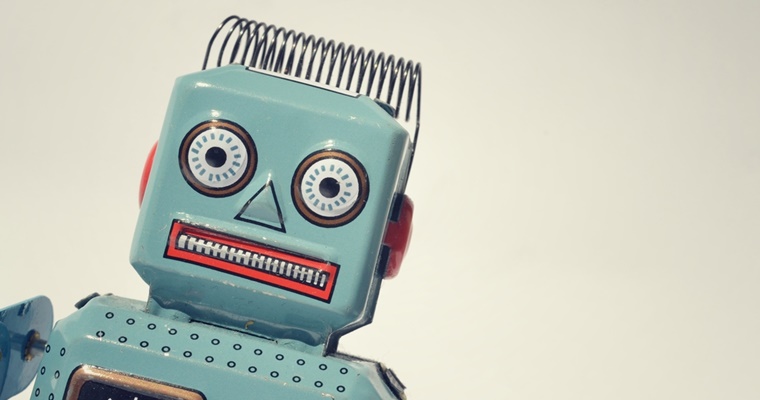It’s been a running trope in a lot of science fiction movies where robots become sentient and set out to destroy humanity.
From Asimov’s I, Robot, to Arnie’s Terminator, we’ve always had an uneasy peace with the machines.
However, considering how well machines have been adapting to human jobs and how much more efficient they are at following instructions, maybe they are the replacement for humanity as we go further into the twenty-first century?
Are there any professions that are safe from the unstoppable march of machines?

An Ongoing Rivalry Between the Human and the Machine
From the early days of artificial intelligence, the aim has always been to produce smarter machines, bringing them closer each iteration to the ideal of a thinking machine that is, for all intents and purposes, human.
When you look at all the things that algorithms have done in order to learn and adapt, then you might be thinking that they’re a lot closer to this ideal than they’re letting on. The rivalry between human beings and machines goes all the way back to when automated assembly lines started putting manufacturing assembly workers out of work. In this day and age, however, machines fit into a unique niche. But the threat is always looming of being replaced by a robot.
Google and the Evolution of Algorithms
The thing that “makes” a machine think, the thing that drives its actions, is its programming. A machine is only as good as the code written to allow it to work. Because of this failsafe we don’t need to worry about machines taking over human society. But, even with this in place, algorithms evolve.
A good example of this in real world terms is Google’s search algorithm. The difference from its first iteration to what it is now is as different as night and day.
Although the algorithm hasn’t been programmed to learn from what it does, it is very likely that once Google has gotten to a satisfactory operation level for its search algorithm that they will begin teaching it how to learn and adapt. Von Neumann would be proud.
Content Creation & The Machine
If there were to be a drive to replace human beings with functional machines, very few professions would be secure.
Professions that are based in math, science, engineering and which require heavy calculation would be the first ones to be taken over, slowly working down the complexity chain until the most menial, hard-labor jobs would be reassigned.
The field of content creation would, however, remain largely untouched. This is because content creators generate ideas and the way an algorithm is designed can never truly emulate what a content creator does.
The Human Thinking Behind Content Creation
A content creator approaches a problem with two main aims in mind.
- First, the creator must find something that attracts the audience’s attention and allows him to get his message across.
- Second, he must provide value to the audience so they will not feel as though their time is being wasted.
For the content creator to deal with the creation of content for a specific audience, they must know what draws that particular demographics’ attention. The creator must be aware of the emotions associated with this demographic in order to write better copy.
Why An Algorithm Can Never Copy True Emotional, Human Thought Pattern
The entire development of an algorithm doesn’t take into account empathy or emotions. Machines can’t feel. Give them facts and figures and teach them how to crunch numbers and they fare just fine. Ask them to develop an idea of how emotions work and why someone would do something illogical when emotional and they would have no idea what to tell you.
Asimov explored this in great depth in his Robot series, but he played up the lack of emotions to be a good thing. In our society, where we are becoming more and more detached from each other, it’s most definitely not a desirable trait. The reason why good content works is because it allows you to connect with an audience emotionally. Left to the cold, processing thoughts of an algorithm, it’s obvious why there is still a need for human content creators.
Example of a Machine: The Ol’ Article Spinner
In latter part of the ’00’s decade, content producers thought that hiring content writers to redo articles and to rewrite the same article multiple times was too costly. They invented the idea of an article spinner (something that SEO authors on Search Engine Journal have pointed out as a Black Hat SEO tactic).
What a spinner was designed to do was to take a piece of content and “rewrite” it by replacing the filler words in between the content to create new content from a source article.
The idea was that a spinner with a skilled operator could replace a writer completely and do the work of five people in the space of time it would take one writer to complete one article.
Here’s one of those old article spinners, and let’s plug-in a piece of content to see how it worked:

The idea for an article spinner was a great attempt at trying to use technology to make work easier…that FAILED.
The reason why it failed? Because of good content, written by people who are aware of what they’re talking about.
Look at one of those “spun” sentences.
Our sentence: ‘In order for content to spread virally it must be good content.’
Spun sentence: ‘As a way for content to disperse virally it needs to be great content.’
Even worse: ‘also motivates so that it is joint to another location operator or anything else..’, one of the spun sentence fragments.
Would that be shared by a real reader? Could that be branded content a business could be proud of?
No. It’s laughable.
No article that is produced in this day and age that ranks well on Google can be attributed to a spinner. The simple reason is that our content reflects a bit of our humanity in it. Our research takes us to topics that are unknown and our insight into how those topics affect us is the basis of what makes our content something our audience can identify with. A machine can’t make good content because it doesn’t understand what makes content ‘good’. Technology tried to improve on what we do as content creators and failed miserably.
But that doesn’t mean they’re not going to give it another try.
Man vs. Machine: Apple, A Case Study in Revolutionary Media
Fortune reports that Apple has launched a new News app to compete with Facebook’s algorithm-driven “Instant Articles” feature. Facebook contends that all content can be broken down into component parts and based on what demographic those component parts appeal to, it can drive the engagement factor of the content. With this in mind, Facebook’s algorithm seeks to do something previously thought impossible: edit news for a vast and multi-faceted audience.
Apple’s view on the matter is the other end of the spectrum. No matter what a computer can do, Apple contends, a human can do better, at least when it comes to content control and editing. To this end, Apple has hired a number of experienced editors to be part of its news app, competing directly with an algorithm for relevancy and engagement. Apple states that they are looking for editors that are, “passionate, knowledgeable editors to help identify and deliver the best in breaking national, global, and local news.”
What This Means for Content Creators
We have already established the fact that current algorithms can only perform based on metrics and data and that emotional response still remains an unmappable entity. However, depending on the outcome of this matchup between Apple and Facebook, we could very possibly be seeing inroads into a previously sacred sanctum. It comes down to how accurately Facebook is able to break down the emotional connection of its audience to match the news that it is going to be delivering to them. The audience is the key element here, and what they decide will let us know whether we could possibly see a change in the human-machine paradigm in terms of emotional intelligence.
What Makes Humans Better than Algorithms for Content Creation?
To make a long story short, we know how our species thinks. We know what makes other humans tick. With well-developed content we can make our audience cry out in fear, laugh in joy, descend into despair and any number of other emotions that algorithms can’t quantify, and for that reason, can’t understand.
It’s because of our ability to evoke real emotion in our audience that we will be irreplaceable. As Harvard Business Review contends, no matter how good algorithms get, there will never be one good enough to create content that will go viral. There will never be a machine that can fathom human emotions. Even we, as humans, barely understand how they work. We just know that they do.
Our research into content takes what we know and combines it with what we read to help us garner some insight into a topic. We can then present that topic to our readers in a fashion that is serious, yet casual. We utilize our emotions to bring a story to our audience and make them feel the same emotions we feel when we do our research.
There is a place for logical contemplation of facts, but logic can only take you so far. The logical execution of an algorithm leaves no place for the contemplation of human feelings.
Content creators will always have our machine counterparts… but the real, emotionally driven, reaction-inspiring pieces of content are parts of our humanity, and that cannot ever be taken away from us.
Image Credits
Featured Image: josefkubes/Shutterstock
In-post Photo: Linda Bucklin/Shutterstock
Screenshot via Julia McCoy. Taken July 2015.




